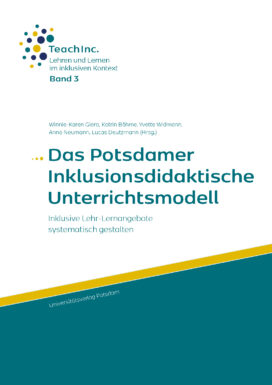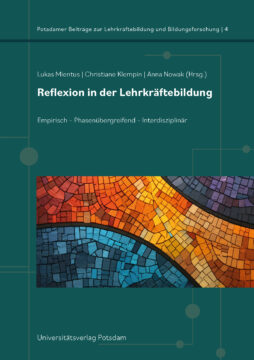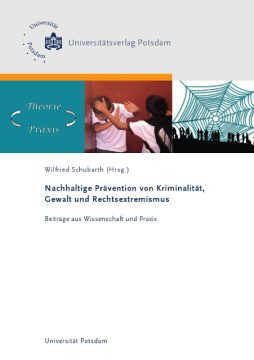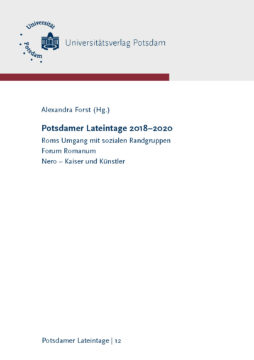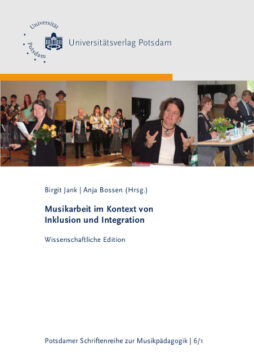Shaping the inclusive education of the future! From April 2021 to
February 2024, various departments and disciplines at the University of
Potsdam worked on the design of a cross-disciplinary inclusive teaching
model with this overarching goal in mind, in collaboration with
teachers, training coaches and student teachers. The result of this
iterative process is the Potsdam Inclusive Didactic Teaching Model
(PIMODE), which combines multifaceted aspects of inclusive teaching on
the basis of a common definition of the term inclusion and can be used
by student teachers to prepare for internships and for their future
professional activities. In this edited volume, PIMODE is presented and
contextualised for the first time on the basis of theoretical and
research-oriented contributions. Furthermore, the present volume
contains practice-oriented contributions that illustrate how PIMODE can
be implemented in university didactics and school practice.
Winnie-Karen Giera , Sascha Hein , Katrin Böhme , Anne Neumann , Lucas Deutzmann , Ivette Widmann , Sarah Bormann , Florian Hebibi , Isabell Runge , Eric Graßnick , Katharina Delius , Birte Pöhler-Friedrich , Charlott Thomas, Sara Hauser , Franziska Risse , Lina Nagel
Inklusive Lehr-Lern-Angebote systematisch gestalten
166 pages
Release year 2025
Series: TeachInc. Lehren und Lernen im inklusiven Kontext , 3
NEU!Non-taxable transaction according to § 1 (1) UStG/VAT Act in combination with § 2 (3) UStG/VAT Act a. F. Providing this service, the University of Potsdam does not constitute a Betrieb gewerblicher Art/Commercial Institution according to § 1 (1) No. 6 or § 4 KStG/Corporate Tax Act. If the legal characterization of our business is changed to a commercial institution subsequently, we reserve the right to invoice VAT additionally.
Shaping the inclusive education of the future! From April 2021 to
February 2024, various departments and disciplines at the University of
Potsdam worked on the design of a cross-disciplinary inclusive teaching
model with this overarching goal in mind, in collaboration with
teachers, training coaches and student teachers. The result of this
iterative process is the Potsdam Inclusive Didactic Teaching Model
(PIMODE), which combines multifaceted aspects of inclusive teaching on
the basis of a common definition of the term inclusion and can be used
by student teachers to prepare for internships and for their future
professional activities. In this edited volume, PIMODE is presented and
contextualised for the first time on the basis of theoretical and
research-oriented contributions. Furthermore, the present volume
contains practice-oriented contributions that illustrate how PIMODE can
be implemented in university didactics and school practice.
Recommended Books
-
 2023
2023Lukas Mientus, Christiane Klempin, Anna Nowak, Corinne Wyss, Claudia von Aufschnaiter, Ann-Christin Faix, Kathrin te Poel, Nadia Wahbe, Martin Pieper, Katharina Höller, Lea Kallenbach, Magdalena Förster, Anke Redecker, Mirjam Dick, Jörg Holle, Edina Schneider, Daniel Rehfeldt, Sarah Brauns, Simone Abels, Daria Ferencik-Lehmkuhl, Selim Akarsu, Gesine Andersen, Ulrike Barth, Tobias Bauer, Renata Behrendt, Anja Böhnke, Andreas Borowski, Kathrin Boukrayaa Trabelsi, Martin Brämer, Birgit Brandt, Meike Breuer, Leena Bröll, Melanie Brüchner, Magdalena Buddeberg, Valentina Conty, Jens Damköhler, Henriette Dausend, Maria Degeling, Dennis Dietz, Markus Elsholz, Sascha Falke, Carolin D. Fellenz, Manuela Franke, Silvia Fränkel, Nadine Franken, Julia Frohn, Laureen Gadinger, David Gasparjan, Susanne Gerlach, Novid Ghassemi Tabrizi, Sebastian Gorski, Leroy Großmann, Uta Großmann, Stephanie Grünbauer, Stephanie Grundmann, Maximilian Haberbosch, Bettina Hannover, Lena Heinze, Vanessa Henke, Sabine Hornberg, Christopher Jänisch, Moiken Jessen, Lisa Jiang, Franz Kaiser, Kristin Kindermann-Güzel, Christina Knott, Katrin Körner, Hilde Köster, Michael Krelle, Marcus Kubsch, Christoph Kulgemeyer, Simon Küth, Anne-Marie Lachmund, Cathleen Larisch, Lukas Lemberger, Bengta Marie Leopold, Tobias Lewek, Ann-Catherine Liebsch, Anna Löbig, Lisa-Marie Lottermoser, Martin Lücke, Jennifer Malek, Jana Meier, Maren Meissner, Volkhard Nordmeier, Mandy Oetken, Ben Opitz, Dörte Ostersehlt, Detlef Pech, Sophia Peukert, Angelika Preisfeld, Kati Pügner, Sarah Rau-Patschke, Friedericke Rechl, Stefanie Reimer, Tamara Riehle, Tim Rogge, Michael Sambanis, Sonja Schaal, Steffen Schaal, Christoph Schäfer, Franziska Schißlbauer, Peggy Schmidt, Susanne Schnell, Daniel Scholl, Pascal Schreier, Lesya Skintey, Nina Skorsetz, Nadine Sonnenburg, Stefan Sorge, Lisa Spitzer, Nathalie Stegmüller, Anja Tinnefeld, Thomas Trefzger, Mergenfel A. Vaz Ferreira, Paul Voerkel, Christoph Vogelsang, Yvette Völschow, Julia-Nadine Warrelmann, Christina Watson, Nadine Weber, Anna Weißbach, Angelika Wiehl, Annett Wienmeister, Eveline Wittmann, Peter Wulff, Jan-Simon Zimmermann, Till Zoppke
Reflexion in der Lehrkräftebildung
26,50 €Non-taxable transaction according to § 1 (1) UStG/VAT Act in combination with § 2 (3) UStG/VAT Act a. F. Providing this service, the University of Potsdam does not constitute a Betrieb gewerblicher Art/Commercial Institution according to § 1 (1) No. 6 or § 4 KStG/Corporate Tax Act. If the legal characterization of our business is changed to a commercial institution subsequently, we reserve the right to invoice VAT additionally.
zzgl. Versandkosten
Add to cart -
 2014
2014Nachhaltige Prävention von Kriminalität, Gewalt und Rechtsextremismus
17,00 €Non-taxable transaction according to § 1 (1) UStG/VAT Act in combination with § 2 (3) UStG/VAT Act a. F. Providing this service, the University of Potsdam does not constitute a Betrieb gewerblicher Art/Commercial Institution according to § 1 (1) No. 6 or § 4 KStG/Corporate Tax Act. If the legal characterization of our business is changed to a commercial institution subsequently, we reserve the right to invoice VAT additionally.
zzgl. Versandkosten
Add to cart -
 2021
2021Alexandra Forst, Nicola Hömke, Meike Rühl, Jon Albers, Filippo Carlà-Uhink, Jan Reimann, Holger Sonnabend
Potsdamer Lateintage 2018–2020
13,50 €Non-taxable transaction according to § 1 (1) UStG/VAT Act in combination with § 2 (3) UStG/VAT Act a. F. Providing this service, the University of Potsdam does not constitute a Betrieb gewerblicher Art/Commercial Institution according to § 1 (1) No. 6 or § 4 KStG/Corporate Tax Act. If the legal characterization of our business is changed to a commercial institution subsequently, we reserve the right to invoice VAT additionally.
zzgl. Versandkosten
Add to cart -
 2017
2017Jank, Birgit; Bossen, Anja (Hrsg.)
Musikarbeit im Kontext von Inklusion und Integration
11,50 €Non-taxable transaction according to § 1 (1) UStG/VAT Act in combination with § 2 (3) UStG/VAT Act a. F. Providing this service, the University of Potsdam does not constitute a Betrieb gewerblicher Art/Commercial Institution according to § 1 (1) No. 6 or § 4 KStG/Corporate Tax Act. If the legal characterization of our business is changed to a commercial institution subsequently, we reserve the right to invoice VAT additionally.
zzgl. Versandkosten
Add to cart
Publisher Info
Contact
Potsdam University Library
University Press
Am Neuen Palais 10
14476 Potsdam
Germany
verlag@uni-potsdam.de
0331 977-2094
0331 977-2292

